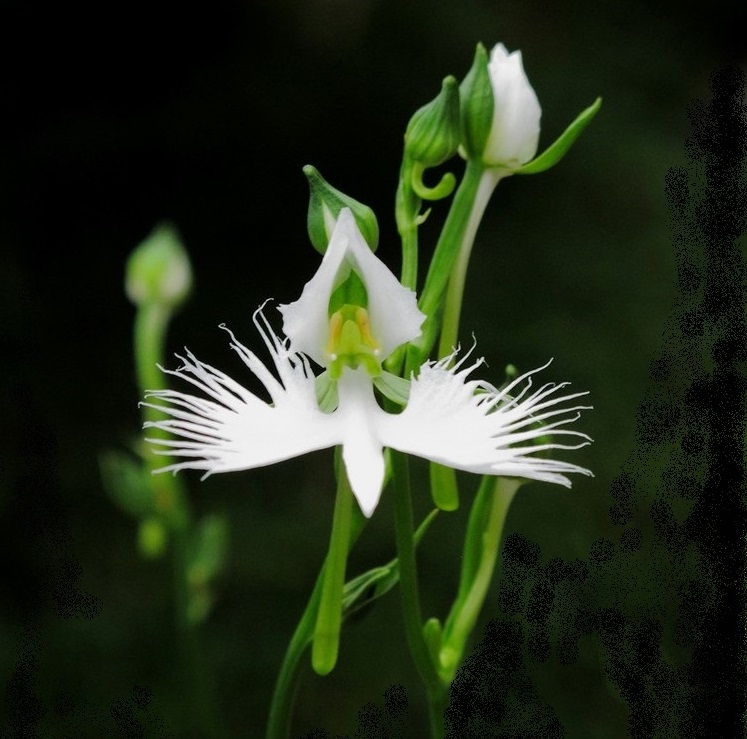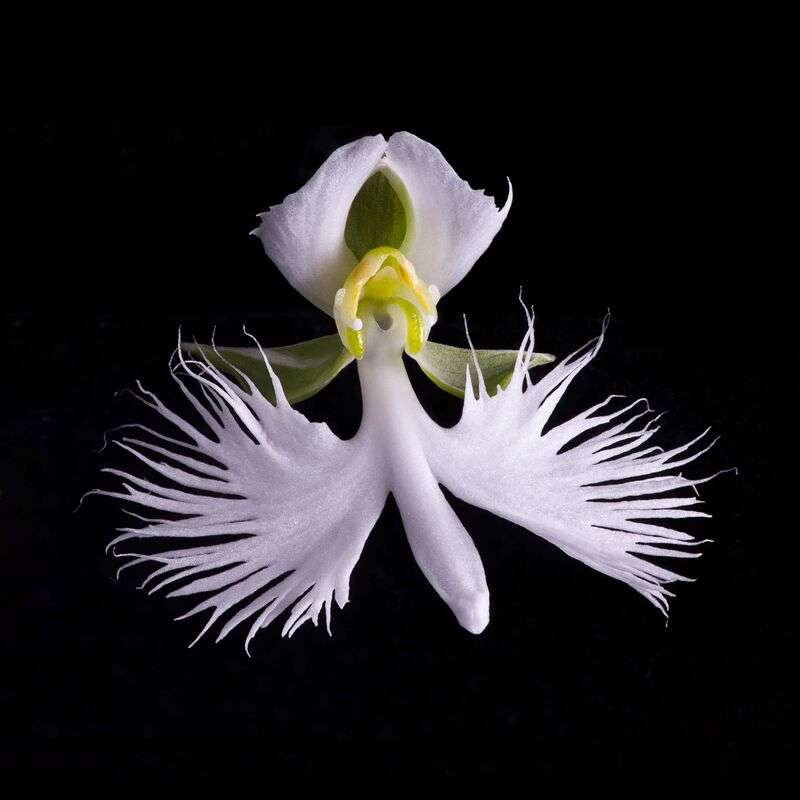| General Poetry posted February 5, 2022 | Chapters: |
...14 15 -16- 17... 
|
      |
Tanka for the Japanese Poetry Club Event
A chapter in the book Tanka Collection
White Egret Orchid
by Gypsy Blue Rose
If You Would Like To Join the Japanese Poetry Club, please check my author notes

 |
--The White Egret Flower is a species of orchid found in China, Japan, Korea and Russia.
--envious = envy, jealousy
TANKA is a Japanese poetic form that originated in the Japanese Imperial Court, where nobles competed in tanka contests and for men and women engaged in courtship. Created 1,200 years ago, it can embrace all of the human experience in its brief space with emotions of love, pity, suffering, loneliness, or death.
Tanka is succinct and may not exceed 31 syllables (5/7/5/7/7) but it can be less than 31 syllables in a short/long/short/long/long format because English syllables are longer than Japanese. Personification, metaphor, simile are permitted in Tanka. Capitalization and punctuation should only be used when necessary. No end rhymes. Alliteration should be avoided or used sparingly. A pivot line, usually line 3, can be read sensibly with lines 1 and 2, and also sensibly with lines 4 and 5, a property that can be used to introduce ambiguity and resonance into the poem. for rules click here
Thank you very much for taking the time to read and review my poem.
Gypsy
*If you would like to join the Japanese Club, please click here and look for the Japanese club* RESERVE A SPOT /SUBMIT YOUR ENTRY
--envious = envy, jealousy
TANKA is a Japanese poetic form that originated in the Japanese Imperial Court, where nobles competed in tanka contests and for men and women engaged in courtship. Created 1,200 years ago, it can embrace all of the human experience in its brief space with emotions of love, pity, suffering, loneliness, or death.
Tanka is succinct and may not exceed 31 syllables (5/7/5/7/7) but it can be less than 31 syllables in a short/long/short/long/long format because English syllables are longer than Japanese. Personification, metaphor, simile are permitted in Tanka. Capitalization and punctuation should only be used when necessary. No end rhymes. Alliteration should be avoided or used sparingly. A pivot line, usually line 3, can be read sensibly with lines 1 and 2, and also sensibly with lines 4 and 5, a property that can be used to introduce ambiguity and resonance into the poem. for rules click here
Thank you very much for taking the time to read and review my poem.
Gypsy
*If you would like to join the Japanese Club, please click here and look for the Japanese club* RESERVE A SPOT /SUBMIT YOUR ENTRY
Club entry for the "TANKA POEM" event in "JAPANESE POETRY CLUB". Locate a writing club.
Pays one point and 2 member cents.

You need to login or register to write reviews. It's quick! We only ask four questions to new members.
© Copyright 2024. Gypsy Blue Rose All rights reserved. Registered copyright with FanStory.

Gypsy Blue Rose has granted FanStory.com, its affiliates and its syndicates non-exclusive rights to display this work.
